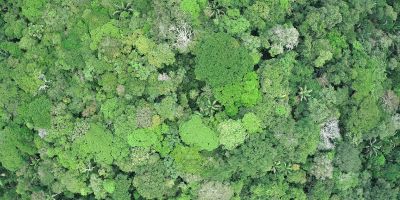Research collaboration across the North Sea

The University of Leeds collaborates with universities in Norway to drive research across culture, energy and health.
The North Sea University Partnership (NSUP) will focus on the research areas of the Arctic, cultural heritage, health and the North Sea. This will incorporate energy, marine research and the green transition.
The University is committed to making a positive difference in the world, by working together we can maximise global impact.
The partnership will strengthen ties and facilitate collaboration between Norwegian and UK universities, addressing international challenges and cultivating academic and research partnerships.
The NSUP includes the University of Bergen, University of Oslo, NTNU, UiT Arctic University of Norway, University of York, Durham University, Newcastle University and University of Leeds.
Professor Shearer West, Vice-Chancellor and President at the University of Leeds, said: “This partnership will enable Leeds researchers to collaborate even further on their extensive work on climate change.
“The University is committed to making a positive difference in the world, by working together we can maximise global impact.”
The NSUP initiative builds on a joint declaration between the UK and Norway, signed in May 2022 to acknowledge the crucial role of science and innovation in underpinning the economies of both countries.
Professor Margareth Hagen, Rector at the University of Bergen, said: “Collaboration is key to drive academic research in order to help solve some of the world’s most pressing challenges.
“We look forward to continuing our relationship with the University of Leeds as a part of this partnership – by working together we are open to the sharing of knowledge creation and dissemination for our global community.”
Partnership work in action
One example of Leeds’ collaborative work is with academics at the University of Bergen on the monitoring and modelling of glacier changes in the mountain regions of the world.
Professor Duncan Quincey, a Professor of Glaciology in the School of Geography at Leeds, is working with a team of scientists from Nepal, Norway and the UK.
They are venturing above the Khumbu Icefall on Everest’s Western Cwm to drill and take the temperature of the glacier at more than 6,000m altitude.
Through researcher exchanges and scholarships the team have forged new connections that are leading to further collaboration on research projects.
Professor Quincey said: “The connections that our partners have to local communities and to government can enable research findings to reach both the people most likely to be impacted and those who can enact policy to mitigate those impacts.”
He has been working closely with Professor Ann Rowan and Associate Professor Benjamin Robson in the University of Bergen's Department of Earth Science, who specialise respectively in numerical modelling and remote sensing in mountain environments.
Professor Quincey added: “This is very valuable to us as the skills our Bergen colleagues offer are complementary to our own here in Leeds, with specific knowledge of how to apply them within the Himalayan context.
“Thanks to the UK-Norway bi-lateral agreement to co-fund researchers, Professor Rowan will be joining us in the field in the spring, along with some PhD researchers from Bergen, as part of the Leeds-led expedition into this largely unexplored zone in the Himalaya.”
Professor Ann Rowan, Associate Professor of Quaternary Geology and Palaeoclimate at the University of Bergen, said: “Working with Duncan and other colleagues in the School of Geography at Leeds provides complementary skills to those we have in Bergen, allowing us to tackle global challenges together in a much more holistic way.”
Strengthening collaboration partnerships
The University of Leeds is committed to global partnership work and hosted the inaugural International Partners Conference to share and develop knowledge and discuss challenges through workshops and networking.
Delegates from 23 international institutions participated in the University’s two-day programme, with sessions focusing on global and regional networks, equitable partnerships and global student education partnerships.
Professor Hai-Sui Yu, Provost and Deputy Vice-Chancellor, who gave the welcoming address, said: “It was wonderful to welcome so many international partners to campus for this inaugural conference, which provided an excellent opportunity for everyone to network, share knowledge, and explore further collaboration.”
Dr Margaret Korosec, Dean of Online and Digital Education at the University of Leeds, chaired a session on digital education where partners shared innovations in digital education and experiences of using these to support international collaboration in teaching.
One of two panel sessions led by Professor Manuel Barcia, Leeds’ Dean of Global Development highlighted how membership of networks benefits work towards meeting the UN Sustainable Development Goals.
Professor Barcia recently authored a Times Higher Education article about equitable international research collaboration.
A second session discussed how to introduce a global mindset within universities. Methods included the internationalisation of university curriculum and research, developing global competencies and cross-cultural skills, the fostering of inclusive, international campus communities and embedding a global mindset in university operations and leadership.


 The meltwater that originates from glaciers like Khumbu Glacier ultimately supports the lives and livelihoods of millions of people across South Asia. Image credit: Duncan Quincey
The meltwater that originates from glaciers like Khumbu Glacier ultimately supports the lives and livelihoods of millions of people across South Asia. Image credit: Duncan Quincey

